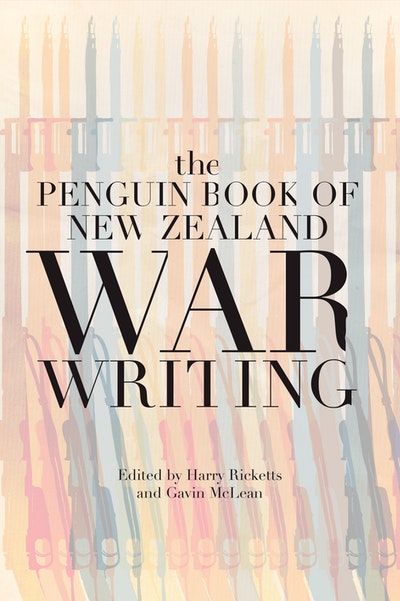- Published: 23 September 2015
- ISBN: 9780143573098
- Imprint: Penguin
- Format: Hardback
- Pages: 528
- RRP: $65.00
The Penguin Book of New Zealand War Writing
- Published: 23 September 2015
- ISBN: 9780143573098
- Imprint: Penguin
- Format: Hardback
- Pages: 528
- RRP: $65.00
'The Penguin Book of New Zealand War Writing is a massive, kaleidoscopic anthology, put together with an enjoyably light touch. The historical sweep extends from Murderers Bay in pre-colonial Aotearoa to present-day Basra, taking in well-known sites of battle and commemoration (Gallipoli, Northern France) and also wars that divided Kiwis, in Vietnam, Korea and Iraq.' - Metro
PRH, PRH
'I read this 500 page volume from cover to cover, skippingnothing, and that is rare praise for any anthology.' - Martin Edmond, NZ Books
PRH, PRH
'a volume that no-one with an interest in wars in which this country has become ensnared should miss reading. The book is a vast treasure trove of material that will surely encourage many readers — after dipping into more than 500 pages of writing devoted to New Zealanders' wars — to go further afield for information at its source.' — Otago Daily Times
PRH, PRH
'This handsome and comprehensive compilation certainly reinforces co-editor Harry Ricketts's opening observation that a case could be made for seeing war as New Zealand's most popular social activity. For a small country at the bottom of the world, New Zealand has managed to keep itself remarkably busy on the war front, even when we've had to travel thousands of kilometres to find one. So not surprisingly, all this activity has been well reflected in literature, both fictionally and in factual accounts.' — Sunday Star-Times
PRH, PRH


